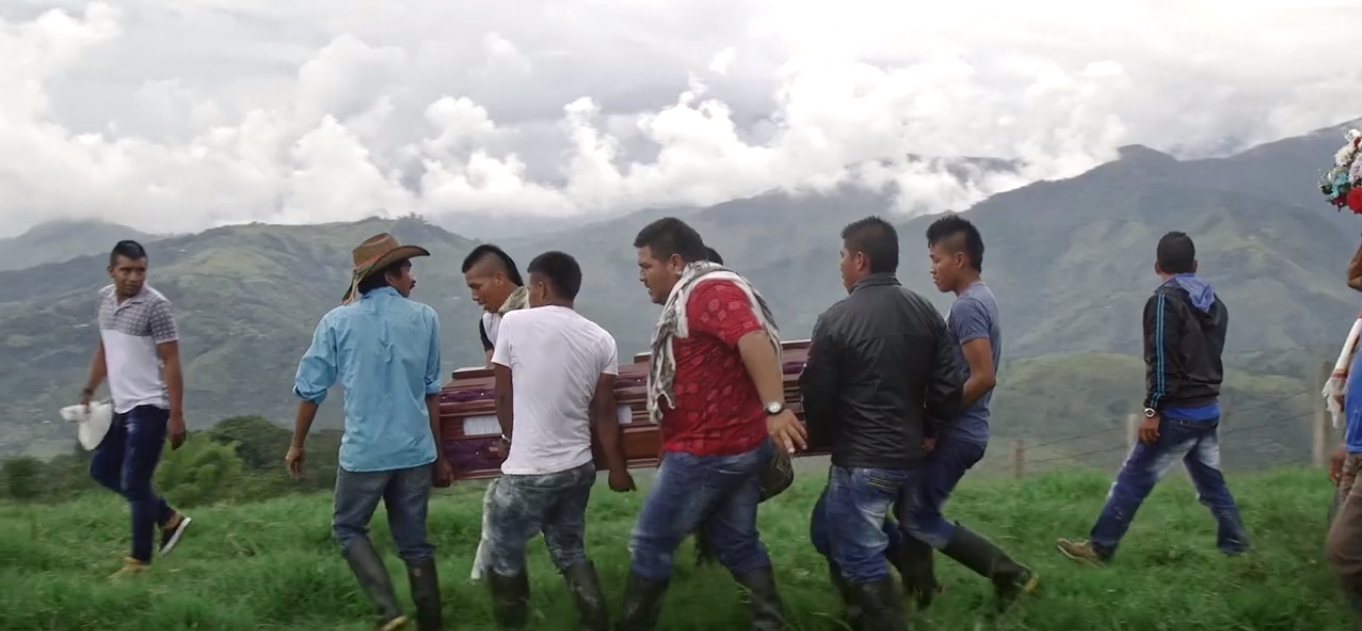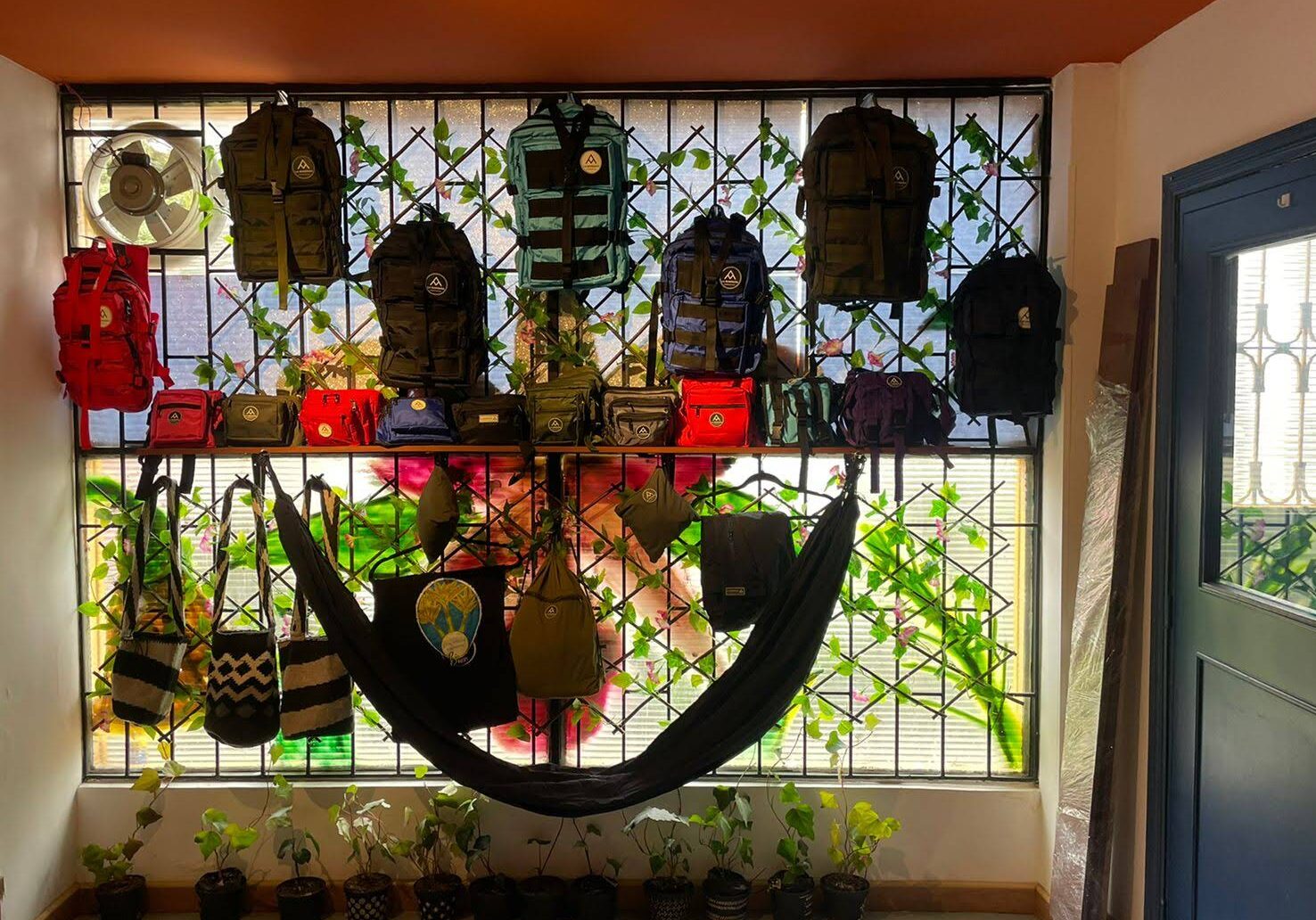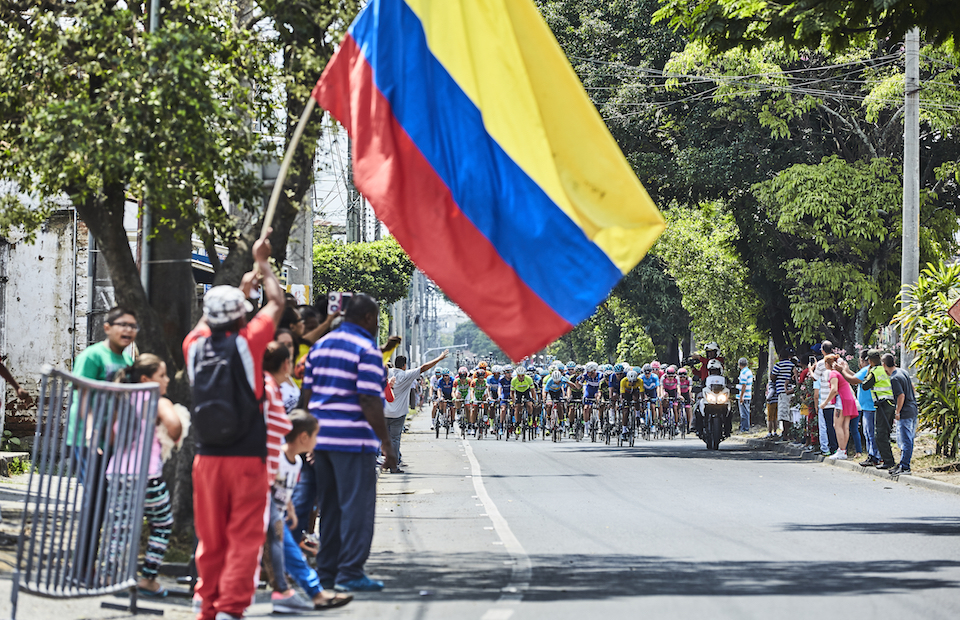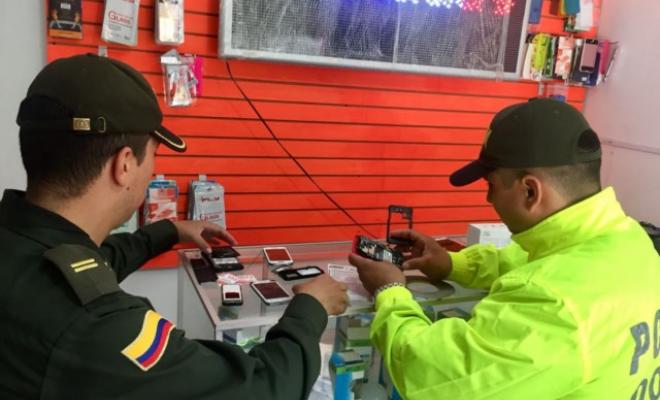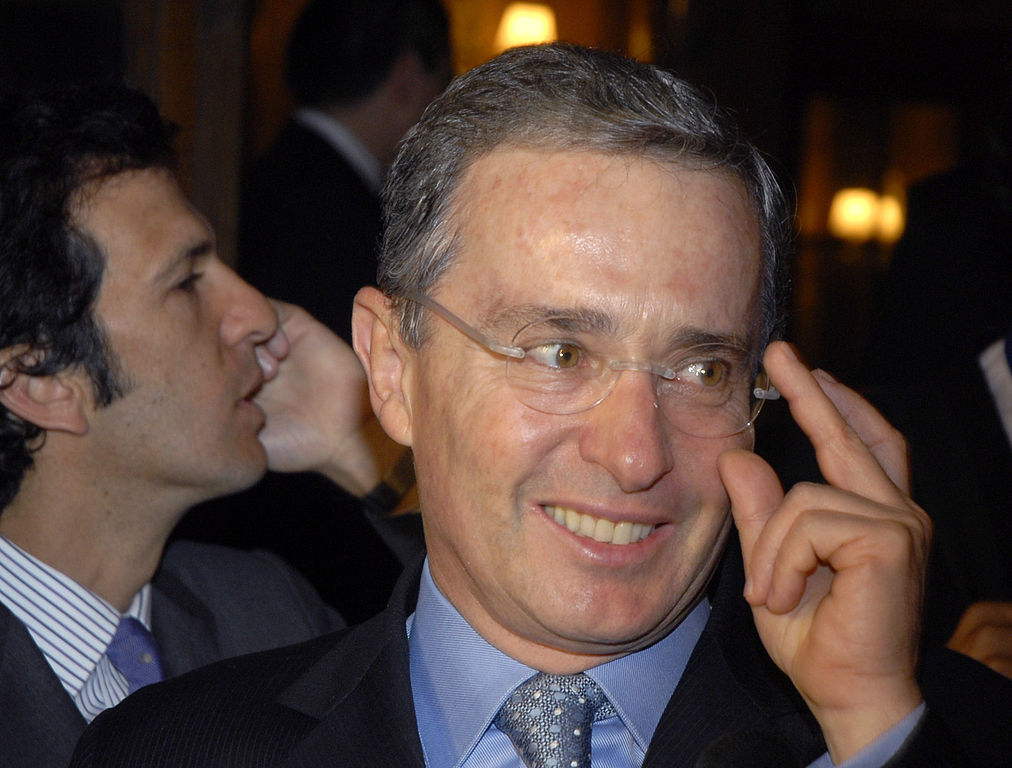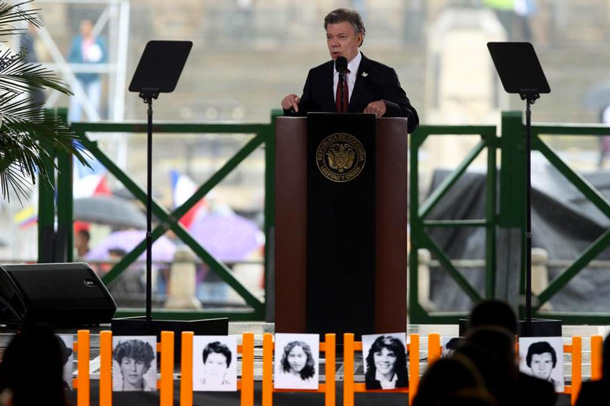
Santos asks for forgiveness and admits the guilt of State in the taking of the Palace of Justice.
President Santos reaches symbolic milestone on the road to reconciliation as he apologises for the atrocities that happened in Bogotá’s city centre 30 years ago this month
On the 30th anniversary of the tragedy, President Santos accepted culpability, on behalf of the State, for the siege of the Palace of Justice, which left 98 dead, including 11 Supreme Court judges.
Now demobilised left-wing guerrilla group M-19, took over 350 judges, lawyers and palace employees hostage in the 1985 siege, which lasted 27 hours. But the way 1,000 soldiers stormed the building has also drawn criticism and the actions of the armed forces are just as scrutinised as those of the guerrillas.
Standing in front of the rebuilt headquarters of the nation’s judicial branch on November 6, Santos described the events as “one of the saddest and most painful chapters of our history”.
He also asked the families of 11 disappeared hostages, mostly workers at the cafeteria beside the Palace of Justice, for forgiveness.
“It is my duty to recognise the responsibility of the state for the unjustified delay in administering justice,” said Santos.
When then President Belisario Betancur refused to negotiate with the 35 guerillas, a reconnaissance mission of armoured tanks and helicopters was ordered before more than 1,000 soldiers stormed the building in what became a deadly clash of wills.
In the 30 years since, controversy has clouded the events following the bloodshed, with disappearances, tampering of evidence, unorthodox body collection, misidentification of bodies and neglect in investigating the truth all adding to the victims’ pain.
Some 11 people were taken alive from the palace by the army but were never to be seen again. According to some reports, they were subject to “torture” and “cruel, inhumane and degrading treatment” after the military believed they were members of the M-19.
“Here there occurred a deplorable, absolutely condemnable action by the M-19, but it must be recognised there were failures in the conduct and procedures of state agents,” Santos said.
Two Colombian colonels have been convicted for the forced disappearances, and a 2014 Inter-American Court of Human Rights ruling concluded that the state was responsible for forced disappearances, torture and extrajudicial executions during the crisis.
The court ordered the Colombian government to undertake measures for the reparation of victims.
More recently, in mid-October, a forensic investigation identified the remains of three bodies as those of three of the disappeared women.
According to a statement from the district attorney’s office (la fiscalía), the remains of Cristina del Pilar Guarín Cortés and Luz Mary Portela León were found in the Jardínes del Recuerdo (Gardens of Remembrance) cemetery in the far north of Bogotá, while the remains of Lucy Ámparo Oviedo were found in two boxes that the Attorney General had stored having been exhumed from the Cementerio del Sur, near Puente Aranda, in 1988.
Guarín and Oviedo were employees at the palace café, while Portela was an occasional visitor who was heading to a magistrate’s office when the siege began.
Santos, after apologising by name to the families of the disappeared, has made a commitment to find the remains of those who are still unaccounted for.
Truth, justice and ensuring the rights of victims have been important focuses in attempts to reach a peace deal between the government and the FARC guerrillas.
In the lead up to this year’s commemoration, a now 92-year-old Betancur said: “I ask for forgiveness, as today I know my actions caused immense pain to the families of the victims and a lot of historical pain to the country, and I reiterate that I would do anything to alleviate it.”
M-19 claimed they were motivated by the government’s violation of a ceasefire agreement made the previous year. However there are a number of other theories about what happened, from those who say that Medellín drug cartel commander Pablo Escobar had a vested interest and funded the group, to those who are suspicious of the government’s own role in the process.
M-19 demobilised in 1990, becoming a political party after a peace deal was reached with the Government.
By Maddie Elder

